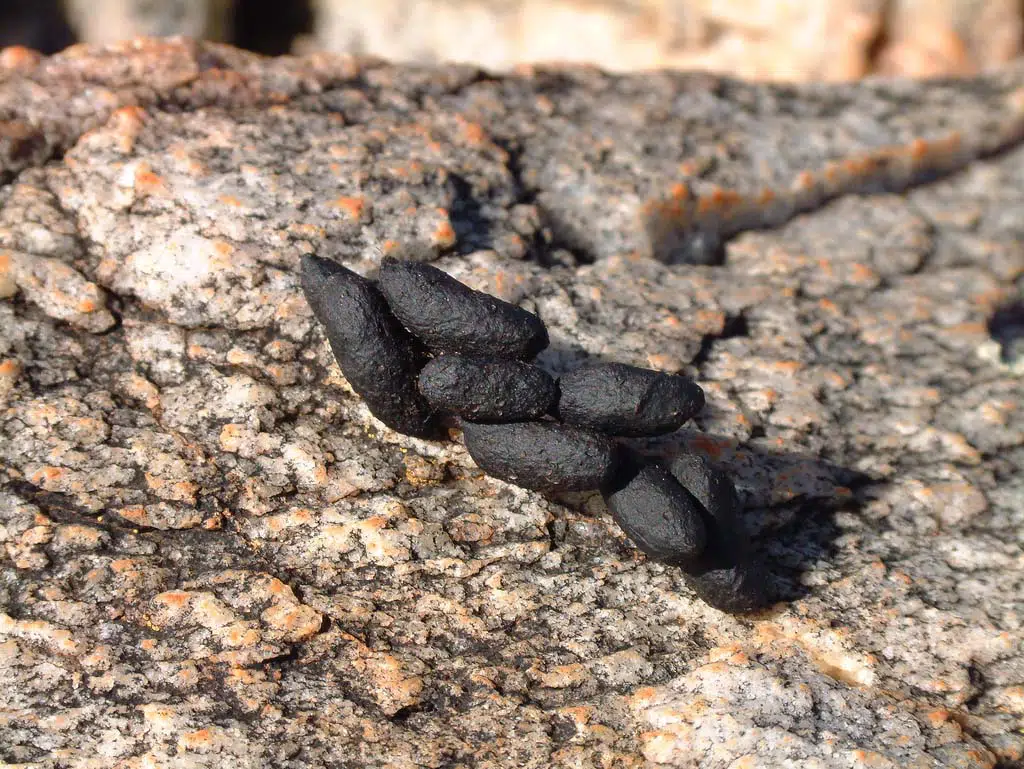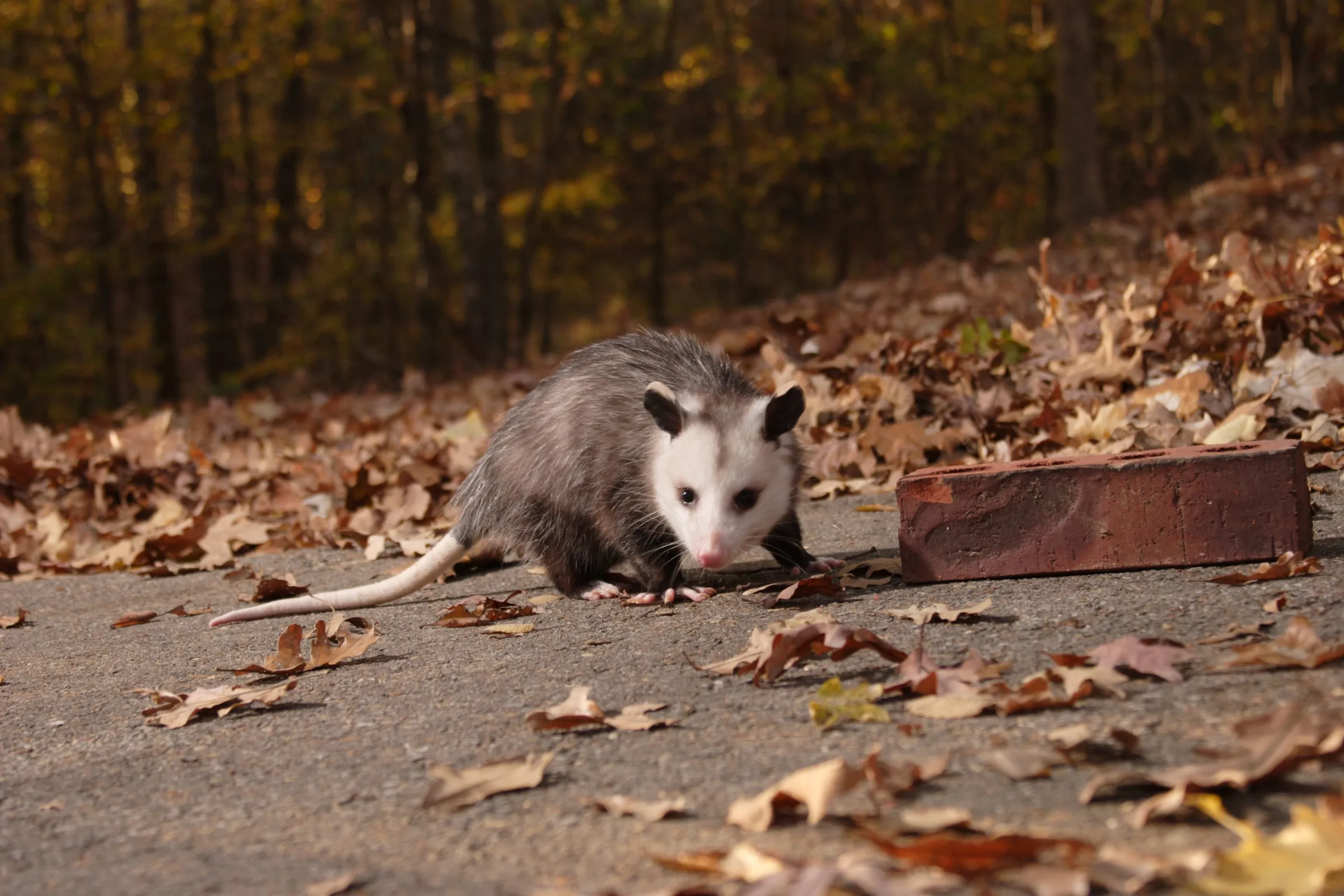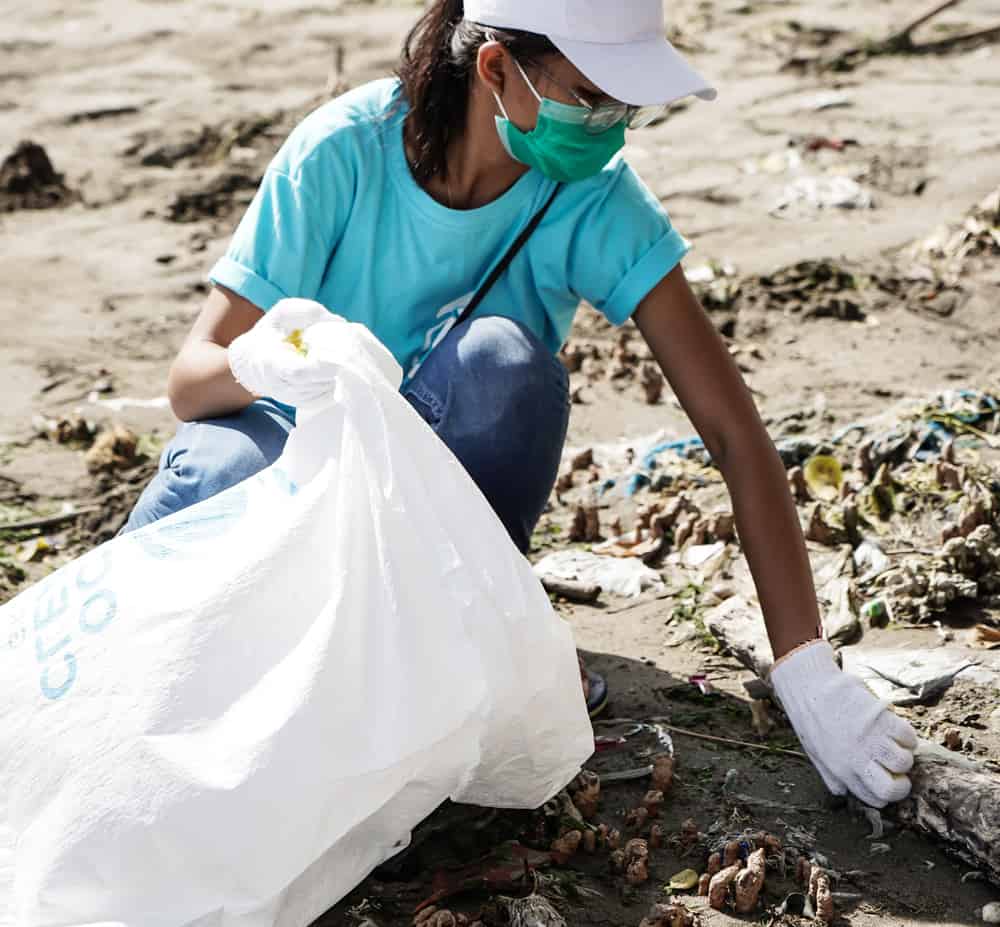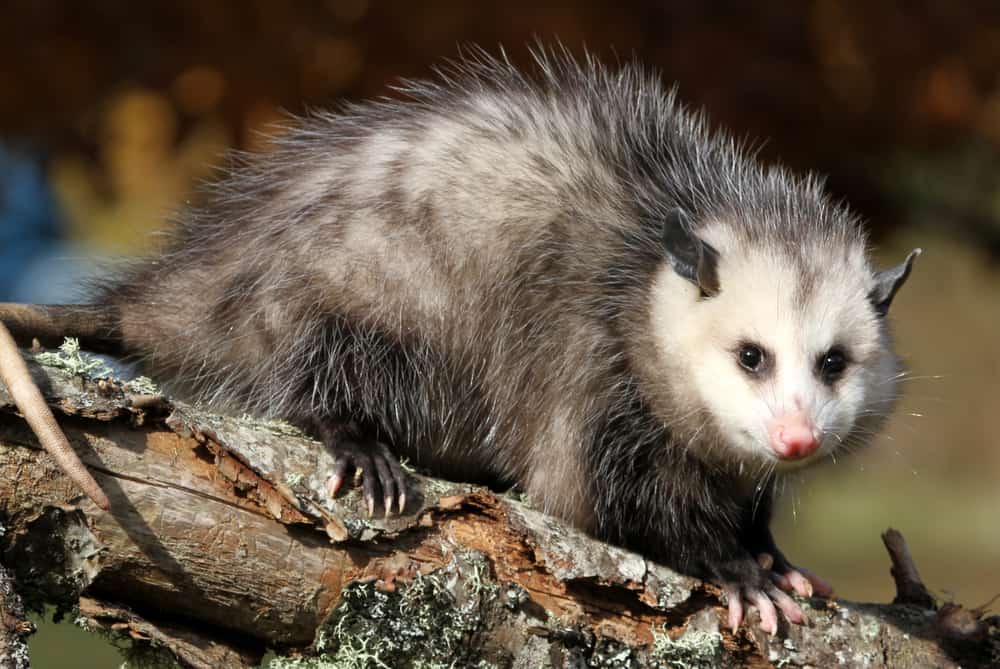Have you ever noticed a pile of strange-looking dark brown droppings in your attic, basement, near the garden, or around the garbage cans? And have you spotted more than one possum in your vicinity recently? If so, chances are that you may have an opossum infestation and the poop belongs to them.
Possums may look cute and cuddly from afar, but their feces can be dangerous and cause serious health problems if not handled properly. In this blog post, we’ll discuss what possum droppings look like, why they’re dangerous to humans and pets alike, how to safely clean up possum poop piles without putting yourself at risk for disease or infection, and what clues might tell you when it’s time to call in professional help. We’ll also answer other questions you might have, such as if opossum feces are stinky, and so on.
So read on if you want to know more about opossum droppings and how to handle them with utmost safety!
What Does Possum Poop Look Like?

When you see little piles of poop in your yard or home, it can be hard to tell what kind of animal it belongs to. Does it belong to a stray cat? To the neighbor’s dog? To a forest animal such as a fox or badger?
It’s not always easy to tell – however, possum droppings are usually easy to recognize so long as you know what you are looking for. Possum poop is similar to that of other animals, but it has its own distinctive characteristics.
Possum poop is generally about the size of a dime or nickel around, so usually around 1/2 inch to 1/3 inch in diameter and then a couple of inches long. It resembles dog poop in some ways, especially in that it has a dark brown color, but dogs generally poop as they walk (leaving a trail of poop) while possums remain stationary and poop in a pile.
They are also distinct in that they may contain flecks of white or green due to the possum’s diet, which includes most fruits, vegetables, and insects (although, it can also include other things). Another strange fact about possum droppings is that possums eat their own feces. This may sound nasty, but it is just nature’s way of helping possums avoid being tracked by their predators.
Where Could You Find Possum Poop?
Just like any animal feces, you can find opossum poop anywhere the animal has been. However, there are a few places that are more common than others, simply because that is where the animal hangs out the most.
The most common places you can find possum scat include attics, basements, piles of debris outside your home, by the trash cans or pet food containers, by the home garden, along fences, and anywhere else where possums might roam. If you’re not sure if the feces you have found are indeed possum droppings, then you will want to take a close look at the poop pile and compare it to pictures online.
Or, if the amount of poop is prevalent enough that it might be a safety issue, then you are best off calling in a pest control professional who can help you identify the feces and dispose of it safely.
Why Is Possum Poop Dangerous?

You may be wondering if possum poop is dangerous. After all, cats and dogs defecate in the same way that possums do – and we don’t think twice about that. Well, wonder no more, because the answer is yes, possum poop can be very dangerous, and here are several reasons why.
Possums carry a variety of dangerous diseases, such as leptospirosis, salmonella, meningitis, EPM (equine protozoal myeloencephalitis), and buruli bacteria. All of these can be spread through contact with possum feces or urine. These illnesses can also be passed on to pets if the possums come into contact with their food or water bowl.
Let’s look at each disease more closely:
Leptospirosis
Leptospirosis, for example, is a serious bacterial infection that can cause fever, vomiting, diarrhea, muscle pain, and kidney damage. It can also cause meningitis, which is a dangerous disease that affects the nervous system and is inflammation of the membranes around the brain and spinal cord, causing severe cases of headache, stiff neck, and confusion.
It can be spread through contact with possum feces or urine as well as through inhalation of particles from possum scat.
Salmonella
Salmonella is a bacterial infection that comes from the intestines of animals. It can cause mild and severe cases of diarrhea and vomiting. It can be spread through contact with possum feces as well as through contaminated food or water.
EPM (Equine Protozoal Myeloencephalitis)
EPM is a parasite disease that affects horses if they eat or come in contact with opossum feces. Symptoms include serious nervous system issues like weak limbs, paralysis, and stumbling.
Buruli Bacteria
Finally, Buruli bacteria is also spread through contact with possum feces. This bacteria is found in tropical and subtropical climates usually, but can also be transmitted by possums. It causes skin ulcers (or really, nodules) that are painless and grow to be large. It also causes painless swelling in the limbs.
Safety Precautions When Cleaning Possum Droppings

The presence of lots of possum droppings is a surefire sign of a possum infestation. As such, it’s important to be aware of what their poop looks like and take steps to safely clean it up in order to prevent any health risks.
If you find possum poop in your home, it’s important to take steps to protect yourself from potential diseases. Let’s look at a few precautions that we highly suggest you take:
Wear Gloves
Whenever you are handling possum droppings, it’s important to wear gloves. This will help protect your hands from coming into contact with the bacteria that can be found in possum feces.
Wear a Mask and Eye Protection
As with any type of animal excrement, there is a risk of airborne particles when dealing with possum poop. Therefore, it is important to wear a mask and protective eyewear in order to protect yourself from inhaling any particles that may be present.
Wear Rubber Boots
In order to protect your feet from coming in contact with possum excrement, it is important to wear rubber boots when cleaning up possum droppings. This will help to prevent any potential contamination from entering into your shoes and onto your feet.
Use a Shovel and Double-Bagging Method
It’s important to use a shovel when scooping up possum poop in order to avoid direct contact with the droppings. Double bagging the droppings is also advised, as this will make sure there is safe disposal. This will help prevent any bacteria or viruses from spreading to other areas of your home.
Use an Enzyme Cleaner
Once you have removed the poop, make sure to disinfect the area with an enzyme cleaner. This will help kill any bacteria that may be present and prevent it from spreading further. It will also reduce any odors that may be lingering in your home, as possum poop is extremely stinky.
Keep the Area Properly Ventilated
Finally, it’s important to keep the area properly ventilated when cleaning possum droppings. Open windows and doors to allow fresh air in and help reduce the risk of airborne particles.
When To Call Professional Help For Possum Cleanup?
If you have noticed a possum invasion in your yard or home, with droppings everywhere, or even if you have just found feces in an area of your home that would be difficult to fully clean, then it’s time to call in professional help for possum cleanup and removal. Animal control experts can set traps, bait opossums with pet food, and use other methods to humanely remove any possums from your property.
Not only that, but they can also inspect the area for any damage caused by the possums and give you advice on how to prevent future infestations. Lastly, professional help is particularly important if you have a large number of possum droppings as it can be extremely difficult (and dangerous) to remove them all yourself. Pest control professionals have been specially trained to deal with toxic feces such as the kind you will find with opossums.
Conclusion
In conclusion, possum poop can pose serious health risks when left unchecked in your home or yard. You do not want to mess with it unawares, so be sure to identify what possum droppings look like, take appropriate safety precautions when handling them, and call in professional help if necessary in order to keep yourself safe from disease (not to mention your kids and your pets, too!).
Don’t let the cute face fool you — opossums (and their poop!) are not something you want to mess with. Take precautions today so that you don’t regret it tomorrow!
Have you ever encountered an opossum infestation or had to clean up a big pile of possum droppings? How did you deal with it? Let us know in the comments!
